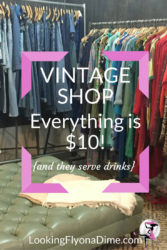I am considering deactivating my Facebook account for a while. The social media platform, which happens to be my daily source of constant news updates is, I believe, starting to have a negative effect on my psyche.
It is allowing me to think that existing in itself is becoming more of a daily struggle. Moments of personal joy are starting to become harder to appreciate, 

Perhaps my consensus may be biased as it is just the representation of a select few from my circle, however, the feelings and expressions can’t be ignored and should be accounted for. Consumers are known to be frugal beings by nature which makes me wonder how much more frugality will surface given the additional expenses and higher cost of living. While competition is healthy and it would probably stimulate retailers to go the extra mile in ensuring consumers come through the doors, it is sometimes unhealthy as it forces retailers to put additional pressure on supply chains and thus demanding lower prices. You can’t help but wonder how much is the worker at the end of the supply chain is earning. In addition to this, as consumers absorb their new economic reality, an attitude of prioritization will step in and things that would be considered to be a little luxury will most likely be scaled back on.
Fashion shopping has always been a seasonal activity for most locally. It isn’t something that would necessarily be capped as an activity of leisure. With less to spend and the lonely atmospherics in the city, shopping becomes a daunting task. While attracting a more conservative attitude towards spending, in addition to finding alternative ways to enjoy fashion we also can’t ignore the fact that more locals are travelling overseas. They are also more tech and digital money savvy.
Providing that immediate daily needs like food and shelter are prioritized for the consumer whatever opportunities that exist to buy locally, will take a great deal of encouragement. The ball is no longer in seller’s court. When the credit crunch happened in Great Britain while I lived there, I remember Orange introducing two-for-one movie Wednesdays at the cinema and entertaining at home became trendy instead of dining out. Consumers found alternative methods to coping with less money. We will also see a rise in appreciation for alternative clothing acquisitions like clothes swapping and second-hand buying. For existing businesses, this means reassessing their place in the market for birth of a new consumer era in Guyana.
Retailers can’t choose to exclude the environment in which consumers live, if they want to succeed in business. They will have to accommodate their new-found awareness, whilst trying to remain profitable. One good thing about the added pressure though, it helps consumers make more effective fashion choices. We value personal style more because we contemplate how and when to spend more deeply. We explore alternative methods of fashion procurement that we once turned up our noses at. We become more cognizant that fashion and style are not established by how much you spend but by what you choose.
www.online-runway.com
http://instagram.com/theonlinerunway




